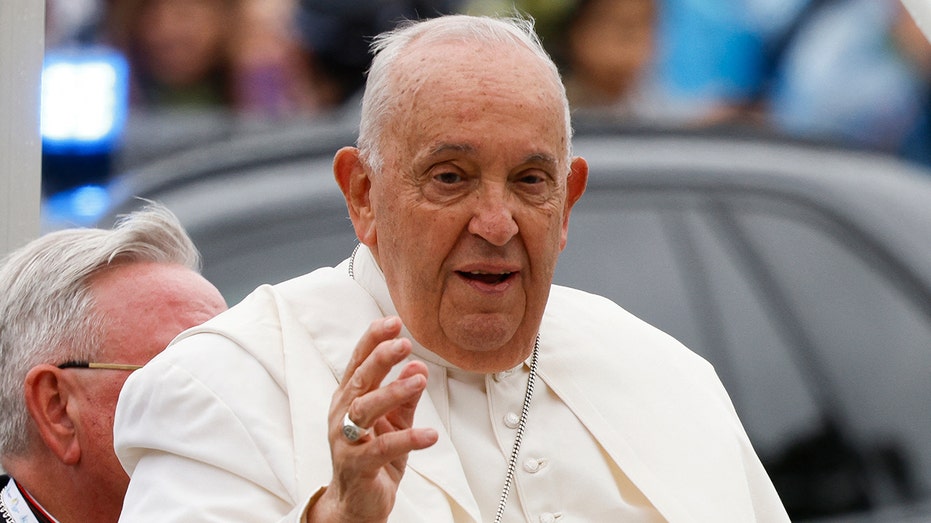Pope Francis, the beloved leader of the Roman Catholic Church, has reportedly passed away at the age of 88, as confirmed by the Vatican’s camerlengo. This announcement has sent shockwaves across the globe, mourning the loss of a pontiff who was known for his progressive views, compassion, and commitment to social justice.
Heartfelt tributes have begun pouring in from world leaders, religious figures, and the general public, all expressing their condolences and honoring the legacy of the Pope who has led the Catholic Church since his election in 2013. His tenure was marked by attempts to modernize the Church, making it more accessible and relevant in today’s rapidly changing society.
Pope Francis, born Jorge Mario Bergoglio in Buenos Aires, Argentina, was elected as the 266th pope following the resignation of Pope Benedict XVI. His papacy was characterized by an unprecedented warmth and openness, breaking many traditions typically held by the Vatican. He was notably the first Jesuit pope, the first from the Americas, and the first from the Southern Hemisphere. Throughout his time in office, he advocated for the marginalized and uplifted issues surrounding poverty, immigration, and climate change.
Within the first few years of his papacy, Pope Francis made headlines with his emphasis on mercy and love, breaking down barriers that have historically discouraged dialogue between the Church and modern societal issues. Many praised him for his outreach to LGBTQ+ communities, as well as his appeal for forgiveness within the Church’s own ranks concerning issues such as past scandals and the handling of sexual abuse cases.
His progressive agenda often brought him into conflict with traditionalist groups within the Church. However, he remained steadfast, believing in the necessity of evolution and adaptation within the Church to address the needs of its followers. He regularly emphasized the Church’s mission to serve the poor and the marginalized, stating, “A church that is poor and for the poor.” This commitment profoundly resonated with many around the world.
Camerlengo, the official responsible for the administration of the Holy See during the interregnum following a pope’s death, announced the news of the pope’s passing to the world. Families, communities, and global religious leaders are now coming together to commemorate the life and legacy of Pope Francis, recognizing the significant cultural and spiritual impact he made during his time on earth.
Upon hearing the news, many began lighting candles and gathering in front of St. Peter’s Basilica, where the Pope spent much of his papacy. Vigils have been organized worldwide as Catholics and non-Catholics alike reflect on the teachings and messages proclaimed by the Pope throughout his leadership. His efforts towards global reconciliation, peace-building, and efforts to combat climate change have inspired many to engage in social justice movements.
Witnesses in Vatican City reported a somber atmosphere, with many congregants praying together in solidarity. Even in death, Pope Francis’s calls for unity and love across different faiths and cultures remain pivotal. The potential for his message of inclusivity to echo through the ages is a testament to the power of hope and faith, establishing his lasting legacy in modern history.
As the Vatican prepares for the days of mourning ahead, discussions about the future of the papacy will undoubtedly emerge. Procedures have already been set in motion for the conclave, where cardinals will gather to elect the next pope. In light of the late pope’s forward-thinking approach, many are watching closely to see if his successor will continue along the same-line philosophy or revert back to traditional practices.
Speculation around potential candidates for the papacy has begun, with various church officials and cardinals being mentioned. Each potential leader will carry the weight of not only leading the world’s approximately 1.3 billion Catholics but also continuing upon the pathway of modernization that Pope Francis has endeavored to pave.
The process of selecting a new pope traditionally includes days of meetings and discussions among the College of Cardinals, culminating in a secret vote conducted under the watchful eye of a global audience. The world is poised for these conclave proceedings, where cardinals will decide the future direction of the Catholic Church in what could be a transformative moment for Catholicism.
While the legacy of Pope Francis will be honored, people are reflecting on the significant moments during his papacy. From interfaith dialogue to global pilgrimages, his engagements have set a foundation that many hope will continue in the years ahead. The reconciliation with environments harmed by human action has also been a crucial pillar in his work, advocating strongly for environmental justice and care for creation—positions that many feel will need to remain at the forefront as humanity addresses the climate crisis.
Pope Francis’s ability to connect with people from all walks of life, urging kindness, compassion, and empathy, established a very relatable image of a pontiff who stood alongside his flock. His messages of peace, forgiveness, and love have transcended borders as he reached out to diverse populations, encouraging them to live by the gospel virtues that strengthen humanity.
In the wake of such a monumental loss, many are questioning what the future holds for the Catholic Church. Some leaders are hopeful that Francis’s vision will inspire future popes, advocating for a Church that is inclusive and aware of the struggles faced globally. Others are concerned that any shift back to traditional practices might alienate many who have felt that they found solace in the current direction championed by Pope Francis.
As the Vatican begins making formal arrangements for mourning ceremonies, the world will await opportunities to pay tribute to a leader who lived a life dedicated to service, love, and inclusivity. Becoming a beacon of hope for a more compassionate world, Pope Francis retreated from the world in fulfillment of his mission to lead with humility and grace.
As condolences continue to pour in, community gatherings and interfaith services are being organized, reflecting the widespread impact of the Pope’s life. This is a time for not only Catholic faithful but individuals of all beliefs and backgrounds to come together in remembrance of a leader who sought to mend divides and create a foundation for kindness in an often disheartening world.
The legacy of Pope Francis is one that speaks to the heart of what it means to be human, reminding all people that love, compassion, and understanding towards one another are essential to a harmonious society. As mourners gather, the spirit of unity he promoted will surely guide the conversation on how to move forward, embracing the light that he brought into the world.
































